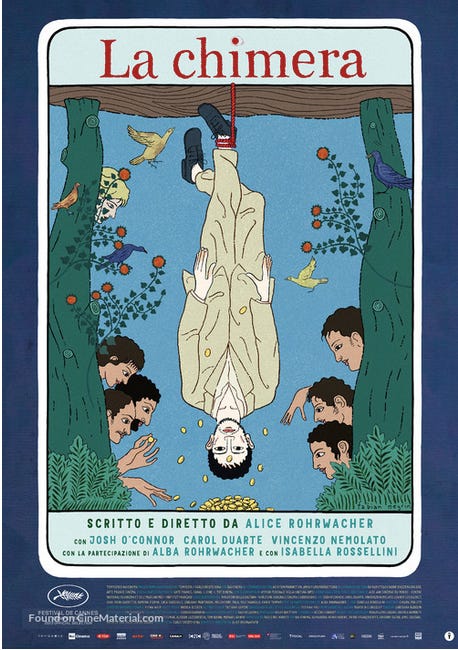A few quick notes to start:
My new novel, Small Rain, is out on September 3. Please preorder it by asking at your local bookstore, or from your favorite online retailer. Here are a few links: Bookshop, Powells, Barnes & Noble, Books-a-Million, Amazon. There are even more links at the Macmillan page.
I’m still a little miffed about the fact that in 2015, when I asked to narrate the US audiobook of What Belongs to You, they wouldn’t even let me audition; an actor narrated it instead. But Picador UK said yes, so I recorded it all those years ago, in a little studio in London. That version has never been available in the States. But now, almost ten years later, lo and behold, here it is, newly released for US listeners. You can get your copy here, or from libro.fm (support independent bookstores!), or from Audible, or wherever else you get your audiobooks. I’ll be in the studio recording Small Rain later this month; that recording will be available on September 3. Preorder it here.
Back in 2020, I had a very lovely conversation with Clemency Burton-Hill for WNYC’s The Open Ears Project, a show that invites guests to talk about music that is especially important to them. I talked about the British composer Benjamin Britten and the music he wrote for his partner, the tenor Peter Pears, with special reference to the gorgeous final song from Britten’s cycle Winter Words. Just weeks after we spoke, Clemency survived a devastating brain hemorrhage, from which she has heroically recovered. The season of the show she recorded before her medical crisis is being released now. You can listen to the episode here.
Ok. Now: Alice Rohrwacher’s new film, La Chimera.
*
It begins with a dark screen, with nature sounds: insects, a mourning dove’s cry, intimations of an unseen world. Then, a woman’s face, framed in close up, looking into the camera—but we don’t see it entire; part of the screen is obstructed or blacked out, and then with a click the obstruction slides across the screen, fully obscuring the image before partially revealing it again. The effect is like looking through a View-Master, one of those chintzy photo slideshow toys (we’ll see a child holding one to his face in the next scene) sold at tourist traps. My lost woman’s face, a man’s voice says (all quotes are approximate, reconstructed from notes scribbled in the dark), and the woman laughs and looks at the camera questioningly, turning away to reveal a sun tattoo on her shoulder. Then there’s a cut to the real sun, seen through trees, glimpsed through the window of a moving train. Cut to the woman again—the sun is following us, she says, have you noticed?—before finally we settle on the image of a man, hunched in a corner, sleeping on a train in an ill-fitting, cream suit at once elegant and rumpled, his face bisected by a slowly moving shadow.
It’s a very beautiful visual representation of a traveler’s broken half-sleep, shuttling us between subjective vision and objective world. It also, though there hasn’t been any exposition, introduces us to a story: the scene with the woman is the man’s dream; the woman is the man’s beloved; the woman is lost. I’ve narrated it so minutely—it probably lasts less than sixty seconds—because it also serves as a seedbed for the film’s incredibly dense and intricate construction. Each image—the woman, the sound of insects, the mourning dove, the sun—will recur, accruing meaning over the film’s two hours. This is typical of Rohrwacher’s films, though I should say—and I know real cineastes will be aghast: Rohrmacher has made three other films, and her debut won the Grand Prix at Cannes—I didn’t know anything about La Chimera or its director when a friend invited me to a screening at BAM last week. I’ve learned some things since—I went back to see the film two more times over the subsequent few days, and have watched all of Rohrwacher’s other features—but actually my ignorance was a pretty good condition for encountering the film. Or let’s call it innocence, a state of unpreparedness that left me ideally open, ideally defenseless, before the film’s many surprises.



